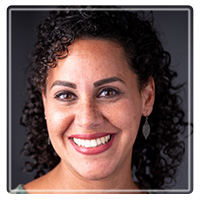
Eating Disorder Counsellor
Kirsteen Moore, Psy. D., R.C.C.
Psychotherapist
6599 Wallace Drive, Brentwood Bay, British Columbia V8M 1J8 | 250-920-6342
I am honoured that you are interested in my services and I would like to tell you a little bit about myself. I have been described as slightly non-conventional in the counselling world, which suits me perfectly, and also tends to suit youth who are trying to stand up to the force of the problems in their life. I am very comfortable working with this population, and I feel fortunate that I can connect with teens the way I do, conventionally or in a way that makes sense to them.

Eating Disorder Counselor
Geoff Williams, MSW, RCSW, RCC
Registered Clinical Counsellor & Registered Clinical Social Worker
Available for Online Therapy
I am flexible in approach with Eating Disorders, starting with what has worked or is working with you already. I offer Acceptance and Commitment Therapy as a new approach that will help you to target the thoughts and feelings that cause the problem behaviours in a whole new way. I will give you new skills for handling difficult thoughts and feelings that cause you to binge, purge, or over/under eat. I have formal training in the ACT model which is an evidence based treatment for EDs. Contact me to discuss further.

Eating Disorder Counselor
Olivia Mayer, MA, RCC
Registered Clinical Counsellor
Available for Online Therapy
Olivia has a passion for helping individuals struggling with eating disorders, providing support through a behavioral and trauma-informed approach. She helps clients uncover and address the underlying emotional and psychological factors contributing to their disorder while equipping them with practical strategies for recovery. Olivia’s compassionate and holistic approach focuses on creating a safe space for clients to explore their relationship with food and their bodies, empowering them to build healthier habits and a positive self-image. By integrating trauma-informed care with actionable tools, Olivia walks alongside her clients as they work toward healing, resilience, and lasting change.

Eating Disorder Counselor
Heather Awad, MCP, RCC
Registered Clinical Counsellor
Available for Online Therapy
If you’ve struggled with disordered eating, you are all too familiar with compulsive behavior, obsessive thoughts and a disconnect from the body. You may also have a constant need for control while at the same time feeling a frightening and exhausting loss of all control. Please know that none of this is your choice, but rather is a state of stress and overwhelm while you do your best to feel better. I have nothing but compassion for the distress that comes with food-related challenges, and you have my commitment to help you care for the difficult underlying emotions involved. Together, we will create a safe space to move towards healing and a safe relationship with food and the body.

Eating Disorder Counselor
Kevin Fleming, Ph.D.
Coach/Change Agent/Consultant
At Home or Private Discreet Intensives
While most eating disorder issues are treated by cognitive behavioral methodologies or specialized outpatient/inpatient programs, Grey Matters International and the work of Kevin J. Fleming, PhD provide relief first and foremost for the brain of one suffering from an eating disorder----without giving them medication. We believe that the neural circuitries responsible for the compulsive behaviors with eating are not necessarily only a neurotransmitter issue but of overused neural networks that affect the harmonization, balance, and decisions of the whole brain. Contact kevin@kevinfleminphd.com or 877-606-6161 to learn more about this safe and effective alternative.

Eating Disorder Counselor
Philip Starkman, MSW, RSW
Registered Psychotherapist
Available for Online Therapy
Eating disorders benefit from the same or similar approach used for all addictive behaviours. One of the main therapeutic approaches I use is Mindfulness Based Cognitive Therapy. The relationship to food can be quite complex involving societal or cultural pressures, self-image, past traumas, addictive non-nutritious junk food, media images, social media pressures, bullying. Shame and guilt need to be addressed along with peer pressures. The most common eating disorders are: Anorexia, Bulimia, Binge Eating, Pica, Rumination Disorder, Avoidance/Restrictive Food Intake Disorder (ARFID), Orthorexia, Purging Disorder etc. The benefits of therapy are enhanced self-image, health and well-being.
